By Peter Kross
Admiral Wilhelm Canaris was an enigma. During World War II, he headed the Abwehr, the German intelligence service. He was a brilliant man who was not an ardent Nazi like his superiors. He did all in his power to outwit the Nazis while at the same time working as their chief spy. How Canaris managed to pull off such a feat was an accomplishment in itself. One of the persistent rumors during and after the war was that Canaris was secretly working for the Allies and was one of the participants in an attempted coup to oust Hitler.
Canaris was born on January 1, 1887, in Aplerbeck, Germany, in the Ruhr Valley. He was the youngest of three children. His father was a prosperous engineer who managed an iron works. The family, which was Lutheran, took its religion seriously. As a young boy, he was called Willy by his parents, an affectionate name that he loved. Canaris met a woman, Erika Waag, in 1917, who would later become his wife. They were married on November 22, 1919.
Canaris entered the Imperial Naval Academy in Kiel on April 1, 1905. While serving in the German military in World War I, he dabbled in espionage. Canaris served in the German submarine and surface fleets and set up a spy network in French-occupied Morocco.
The British trapped and sank Canaris’s ship, the cruiser Dresden, in April 1915 while it was anchored at Cumberland Bay, Robinson Crusoe Island, in the Juan Fernández Islands off the Chilean coast. The ship’s entire crew was captured and interned in Chile. Canaris managed to escape and hiked over the snow-capped Andes Mountains to Argentina with forged papers.
Canaris boarded a ship bound for Holland via Falmouth, England, and arrived in Berlin in October 1916. He immediately reported to the German military on his adventures. Higher commanders saw great potential in Canaris and sent him off to Spain on his first intelligence assignment. Using the code name “Reed-Rosas,” Canaris made contact with anti-Spanish North African tribesmen, whom he tried to entice into revolt.
In February 1916, he left Spain bound for Germany to be trained to command U-boats. The Italians arrested him at Domodossola near the Swiss border. Canaris was imprisoned in Genoa, where he made a daring escape by killing a prison padre, putting on his uniform, and walking out of jail before the priest’s body could be found. Upon his return to Madrid, Canaris was put in command of a U-boat and served in the Imperial Navy until the war ended in 1918.
In 1920, Canaris took part in a plot organized by Prussian nationalist Wolfgang Kapp to overthrow the German government. Kapp’s goal was to overthrow the Weimar Republic and return Germany to her pre-World War I status as a monarchy. Canaris served a brief prison sentence after the unsuccessful coup.
As Hitler expanded his power in Germany, Canaris was leery of where Hitler was taking the country. But as a German officer, Canaris could not make his feelings known to his fellow officers. In September 1939, Canaris witnessed a mass killing in Bedzin, Poland as SS troops locked 200 Jewish civilians in a synagogue and set it on fire. Canaris was shocked by what he saw.
In addition, German intelligence officers informed him of mass murders being committed by certain military units during the initial phase of Germany’s invasion of Poland. Canaris, who was outraged by what he saw and heard, went to Hitler’s headquarters train where it was parked in Upper Silesia, to protest the massacre he had witnessed. There Canaris met with General Wilhelm Keitel, chief of the Oberkommando der Wehrmacht (German Military High Command or OKW), and sharply protested the matter. In so doing, Canaris was taking a huge risk to his personal safety and career. “I have information that mass executions are being planned in Poland and that members of the Polish nobility and the clergy have been singled out for extermination,” Canaris said, adding, “The world will one day hold the Wehrmacht responsible for these methods since these things are taking place under its nose.”
Keitel told Canaris not to mention any details of what he had seen to anyone else and to mind his own business. Little did Canaris know at that moment just how prophetic his words were.
British intelligence agents in Spain were watching Canaris while he was playing his sub rosa game. It has been reported that British Army Captain and MI6 chief Stewart Menzies vetoed plans to assassinate Canaris, proposed in 1943 by none other than British double agent Kim Philby. In later years, when speaking about this incident, Menzies said of Canaris: “He did give me assistance. I liked and admired him. He was dammed brave.”
The British were not the only ones that kept a close watch on Canaris’s military progress. Rear Admiral Max Bastian, commander-in-chief of the ships of the line, wrote a glowing report on Canaris on September 24, 1934. At that time, Canaris was leaving his posting on the battleship SMS Schlesien for another assignment. Under “General Opinion,” Bastian wrote that Canaris “handled his command with admirable firmness and consummate professional skill.” In answer to what new posts Canaris might be useful for he listed a half dozen high-level positions that included inspector general of the Reichsmarine, commanding admiral of the ships of the line for the Reichsmarine, and, last but not least, chief of the Abwehr Department in the Reichswehr Ministry.
After serving a short while at a post in the Baltic, Canaris was appointed as the new head of the German spy service, the Abwehr, by Admiral Erich Raeder, the commander-in-chief of the Navy. He replaced Captain Konrad Patig. Canaris was surprised by the appointment. He had no previous intelligence experience (except for his time in Spain) and was not an administrator. However, orders were orders and he took up shop on January 1, 1935. As he took the job that cold January day, Canaris had no idea just how much his life would change.
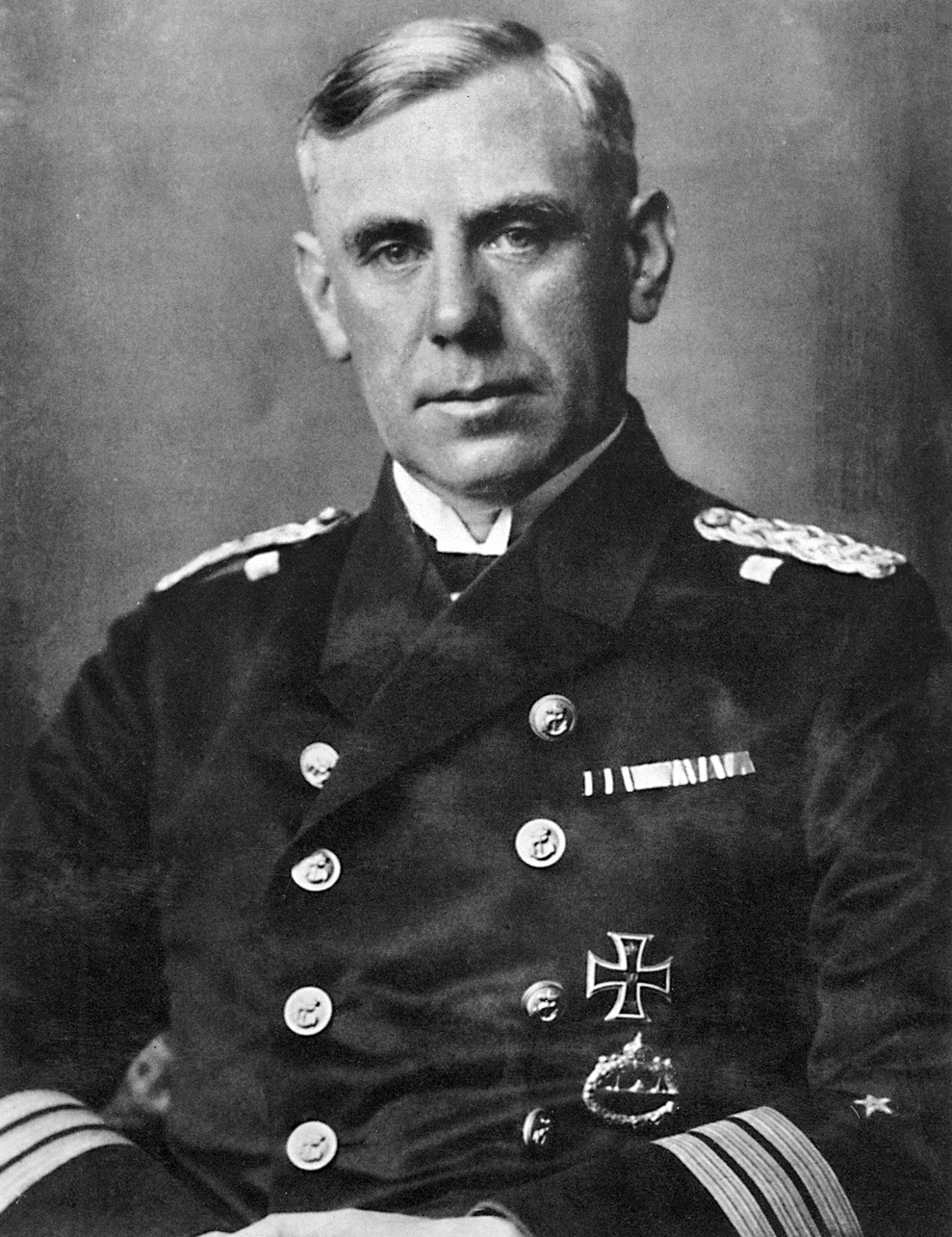
When Canaris took control of the Abwehr, he had to deal with the head of the Sicherheitsdienst (SD), Reinhard Heydrich, one of the most powerful men in Germany. The SD was a component of the SS. Heydrich was dubbed the “Hangman” for his brutal actions against the enemies of the state. One of his first major acts was to give the order for Kristallnacht, or the Night of the Broken Glass, in which gangs of Nazi thugs physically assaulted Germany’s Jewish population.
On Heydrich’s orders, Jewish stores were destroyed and their owners arrested. The rampage laid the groundwork for the Holocaust. Heydrich got rid of a number of anti-Hitler generals. In 1939, Heydrich fabricated an incident along the Polish-German border in which Polish soldiers “invaded” a German military post. The “soldiers” were actually SS men. This incident incited World War II.
Canaris and Heydrich already knew one another. In order not to interfere with each other’s operations, a pact was made in 1936 called the 10 Commandments, in which each side’s duties were put in writing. The Abwehr took responsibilities for military intelligence operations and would give the SD any important information it came up with. The SD also agreed to pass along any intelligence that was important to Canaris’s team. Canaris and the Abwehr now had the major role in German military intelligence, and after a while Heydrich did all he could to circumvent Canaris’s power. Canaris had a secret file on Heydrich consisting of rumors that Heydrich had Jewish bloodlines.
Canaris began to alienate his bosses when he visited the Eastern Front in 1941. He warned his superiors not to pour German troops into a major offensive against Moscow as winter approached. He told one of his friends, “Our resources in transport are wholly inadequate to maintain such large formations so far forward. If the situation of Russia is bad, it can hardly be worse than ours.”
On his way back to Berlin, Canaris met in Switzerland with a woman named Halina Szymanska, who had connections to British intelligence. When the Russians invaded Poland they captured Madame Szymanska and her husband, Colonel Antoni Szymanski, who served on the Polish General Staff. Using his powerful connections, Canaris had been able to get Madame Szymanska and her children safely to Switzerland.
Claude Dansey, one of the top members of British intelligence, had made arrangements for Madame Szymanska to be introduced to British intelligence at the beginning of the war. She was given false identity papers naming her as a French citizen. For all intents and purposes, she was an agent of British intelligence, someone who could pass along vital information to Canaris in Berlin.
In reality, she served as the conduit between Canaris and MI6 under Menzies. In a daring move, Canaris sent his friend and ally Hans Bernd Gisevis to Switzerland, under cover as a vice consul, to aid Madame Szymanski in her anti-Hitler efforts. Gisevis had been a member of the German resistance and had been in constant contact with Dansey since 1939. Canaris met secretly with her in various places in Europe such as France, Italy, and Switzerland.
In later years, she wrote about her relationship with Canaris, saying, “I don’t suppose you could call Admiral Canaris an indiscrete man, but he could be very outspoken. All his conversations were in the sphere of high politics. He would not have told me of petty military matters—small treason such as agents’ dealings.”
Nearly 40 years later, when intelligence historian Nigel West wrote a book called MI6, The Sunday Times of London found a retired spy named Andrew King, who told the Times, “Canaris had tipped off Szymanska in the late autumn of 1940 about Hitler’s plans to invade Russia in the following year.” He added, “Canaris and Szymanska had an understanding that this information would be relayed to London.”
In describing the relationship between Canaris and Madame Szymanska, author John Waller, in his book The Unseen War in Europe, writes, “The significance of this indirect, closely held link between Canaris and the British is that the Abwehr chief established and ran it personally, a departure from his usual practice of staying in the background of the Resistance. Their relationship was a commentary on his trust in Halina Szymanska. Abwehr officer Hans Gisevius, her German contact in Switzerland, was to figure prominently in German Resistance affairs, including the July 20, 1944, bomb plot against Hitler, and to become a secret contact of OSS officer Allan Dulles in Switzerland.”
When Canaris took over the Abwehr, he put in position men of high talent, many of whom were anti-Nazi in their politics. For example, Hans Piekenbrock was chosen to manage secret intelligence, and Helmuth Groscurth was put in charge of sabotage missions. Canaris even arranged for some men working in Germany’s foreign diplomatic posts to act as informants, not real spies, who would provide whatever information they believed would be of interest to him. He placed agents in such countries as Austria, Czechoslovakia, Yugoslavia, and Switzerland, along with other Balkan countries, even sending men to such places as Japan and Ethiopia. Abwehr agents did not fare too well in France, though. At one point, French intelligence operatives captured 21 of his men in such cities as Lyon and Metz.
Canaris was playing a dangerous game of double dealing against his own superior officers. On one occasion, SS Reichsführer Heinrich Himmler sent him to Spain to persuade Spanish Dictator Francisco Franco to cooperate in taking over the British Rock of Gibraltar. Canaris got the Spanish dictator to refuse to allow German troops on Spanish soil and to bar Spanish participation in any attack on Gibraltar. Canaris also tipped off Franco to the impeding German attack on the Soviet Union.
After the war, Ramon Serrano Sunner, Spain’s foreign minister and Franco’s brother-in-law, revealed “how amazed he was that, despite the dramatic Nazi march to victory, Canaris kept insisting that Germany would lose the war in the end.”
Canaris was adept in keeping his anti-Hitler views from coming to the front, as is seen in his overture to the Dutch military attaché in Berlin, Colonel Gijsbertus J. Sas, on February 28, 1940. Canaris’s assistant, Colonel Hans Oster, informed Sas of the impending German invasion of Norway and Denmark. Sas reported the vital information to the Danish naval attaché, Captain Frits Kjolsen, who passed that news to his superiors in Copenhagen. To Canaris’s disappointment, the news was not taken seriously by top Norwegian officials and nothing was done to prevent the upcoming invasion.
In October 1939, Canaris sent another representative of the Abwehr, Joseph Muller, to the Vatican to contact various British and Belgian diplomats. Muller was a brilliant lawyer by trade and was nicknamed “Joe the Ox” by his friends. He told the Dutch and Belgian ambassadors that Germany was planning to attack their nations around November 12. Once again the diplomats did not take Muller’s warnings seriously. However, they were saved when Hitler, for some reason, decided not to mount the invasion at that time.
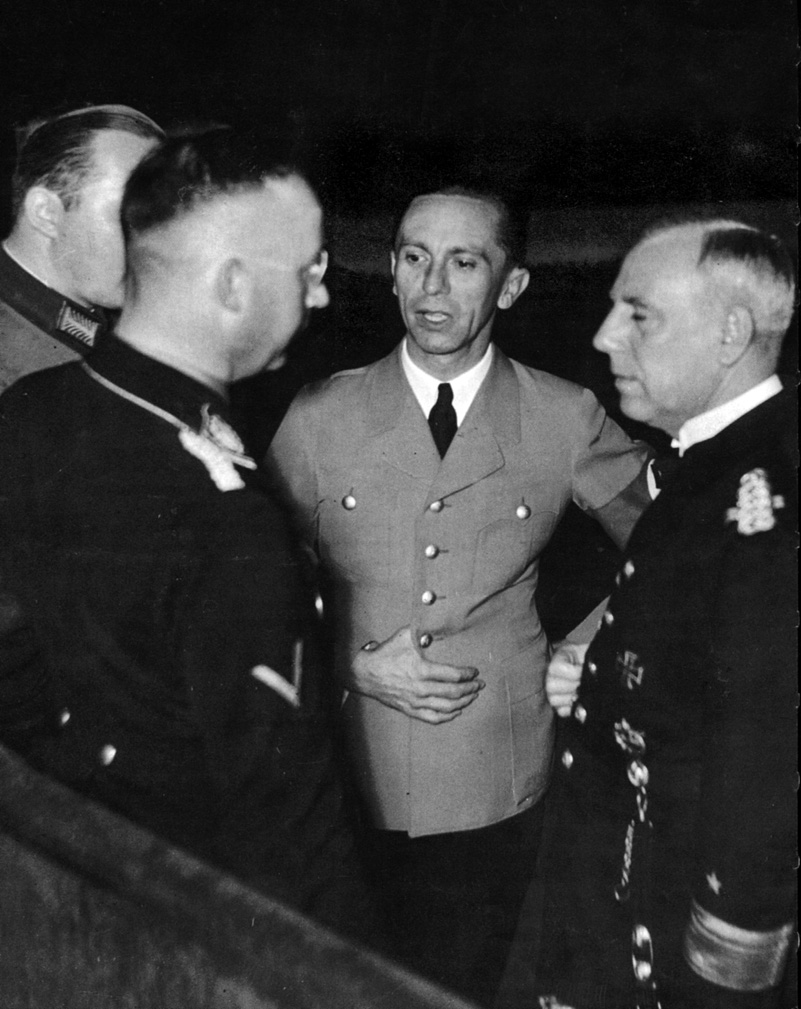
Muller once again showed up in the Vatican on May 1, 1940, and told a Belgian representative that the Germans were going to invade on May 10. The message was sent to Brussels but it was not believed. This cable was intercepted by the Gestapo, and Hitler was informed. He ordered Canaris to find out who sent the message, and he ordered Muller to investigate. Needless to say, there was no investigation of the leak, and Canaris had once again covered his tracks.
Muller was a busy man, and in June 1940 he was back in the Vatican carrying important news. He contacted a British officer and told him that Hitler was planning an invasion of England, code named Operation Sea Lion. There was no date, and despite widespread preparations by Hitler, no invasion of England ever took place. When British Prime Minister Winston Churchill penned his wartime memoirs, he said that he knew of Sea Lion even before most of the German general staff did. Muller later told Churchill of the German plans to invade Russia.
Although there is no concrete proof that Canaris was working secretly with British intelligence during the war, the boys at MI6 knew quite well who their opponent was and what his personal views on Hitler really were. To this effect, the British mounted a propaganda campaign to discredit Canaris at all costs. They called him an assassin, “a rat with a human face,” and “an evil genius.” By degrading Canaris, they were helping the Abwehr chief to remain credible with the German leaders.
Menzies had a growing respect for Canaris, and he wanted to know as much information about him as possible. During the war, the British recruited a Yugoslavian named Dusko Popov as a double agent. He was originally recruited by the Abwehr to spy on the British. Instead, Popov became a double agent, working secretly for the British, who gave him the code name Tricycle. Once Popov was safely encased inside British intelligence, Menzies asked him to provide as much information as he could on the leading Abwehr officials, including Canaris, Hans Oster, and Hans von Dohnanyi.
After the successful U.S. landings in North Africa on November 8, 1942, Canaris secretly sought an audience with Menzies using Portugal as a possible meeting place. If the two men could come to some sort of an agreement, then maybe the war could come to an end sooner. Menzies asked British Foreign Secretary Anthony Eden for permission to meet with Canaris, but his proposal was nixed. In his book The Philby Affair, author Hugh Trevor-Roper wrote that Canaris made several secret trips to Spain during the war and had “indicated a willingness to treat with us: he would even welcome a meeting with his opposite number ‘C’ [Menzies].”
Under the nose of the Gestapo, Canaris had his most trusted agents make arrangements for a number of Jews to be sent out of Germany under cover as Abwehr agents. Colonel Erwin von Lahousen, an Abwehr section head and a trusted aide of Canaris’s, said of his boss, “I know Canaris played a double game. What the limits of that game were, I could not say. Yet, in all that Canaris did, or omitted to do, it is difficult to recognize a clear and undeviating line. He hated violence, was repelled by the war. He hated Hitler and the Nazi system. His weapons were intellect, influence, cunning, and above all—the double game.”
By the end of July 1941, resistance against Hitler was growing among many of the top military officers. Among those who were secretly plotting against him was Maj. Gen. Henning von Tresckow, chief of staff of German Army Group Center at Smolensk; Fabian von Schlabrendorff, a resistance leader; and Field Marshal Gunther von Kluge, commander of Army Group Center. They all agreed that Hitler was leading the country toward destruction and that something had to be done to stop him.
Tresckow devised a plan whereby Hitler would be killed when he came to visit Kluge’s headquarters at Smolensk on March 13, 1943. Canaris arrived at Kluge’s headquarters one day before Hitler’s arrival. He met with the other conspirators and told one of them, “Our generals have cold feet.” The assassination attempt was not carried out when, at the last minute, von Kluge cancelled the plan.
In April 1943, the treacherous actions of Oster and Canaris were finally unmasked by Gestapo agents who found documents linking Oster to the smuggling of Jews out of Germany. In what turned out to be a lucky break for Oster, he was spared harsh punishment and given only a slap on the wrist in the form of a conviction for inefficiency. Oster was removed from his Abwehr post, which came as a terrible blow to the resistance.
Canaris’s star had been fading rapidly as the war progressed. His pessimistic views on the progress of the war on the Eastern Front made not only Himmler but also Hitler more distrustful of the way Canaris was handling the Abwehr. Although they did not need an excuse to fire him, one event pushed them to oust Canaris. On January 26, 1944, Argentina broke diplomatic relations with Germany as a result of enormous pressure from the United States. In the fallout of the diplomatic break, a number of Abwehr spies were arrested in Buenos Aires.
Hitler blamed Canaris personally for the diplomatic rupture and called him to the Eagle’s Nest in the Bavarian Alps to explain his actions. According to Popov, Hitler grabbed Canaris by the lapels and shouted, “Are you trying to tell me I’ve lost the war?” It was Foreign Minister Joachim von Ribbentrop, not Hitler, who officially fired Canaris in February 1944. The Abwehr became part of the SD, which was taken over by Himmler. Canaris was neither arrested nor charged in the matter.
One final attempt on Hitler’s life took place on July 20, 1944, in what was known as Operation Valkyrie. While Hitler was at his headquarters at Rastenburg, East Prussia, the plotters, led by Reich Reserve Army Chief of Staff Colonel Claus von Staffenberg, placed a bomb in the room where Hitler was conducting a meeting. The bomb went off, but Hitler survived. In the immediate purges that followed, many of the conspirators, one of whom was Oster, were arrested. The Gestapo arrested as many as 7,000 people, nearly 5,000 of whom were executed.
Although they were not killed in the immediate purge following Operation Valkyrie, Hitler ordered both Oster and Canaris executed alongside other leading members of the German resistance at Flossenbürg concentration camp on April 9, 1945.
Erwin von Lahousen said that during the war Canaris kept a diary of what he saw and did while Abwehr chief. Although no physical copy of the diary has ever been found, a diary by Canaris would prove a boon to historians of the war. Von Lahousen said that Canaris hand wrote the entries until summer 1939, and after that dictated them to his secretary, Vera Schwarte. Both Oster and von Lahousen copied Canaris’s notes in their own files to have a second record. When Canaris was removed in 1944, there were six binders and six notebooks filled with his recordings, according to the two men.
Right up to the end, Canaris worked diligently behind the scenes to right the wrongs of Hitler’s Germany as he saw them. While there is no smoking gun directly linking him to British intelligence, his many efforts to pass secret messages to the British, his actions in sending numerous Jews abroad under Abwehr cover, and his participation in various plots to kill Hitler made him one of the unsung heroes of the war.
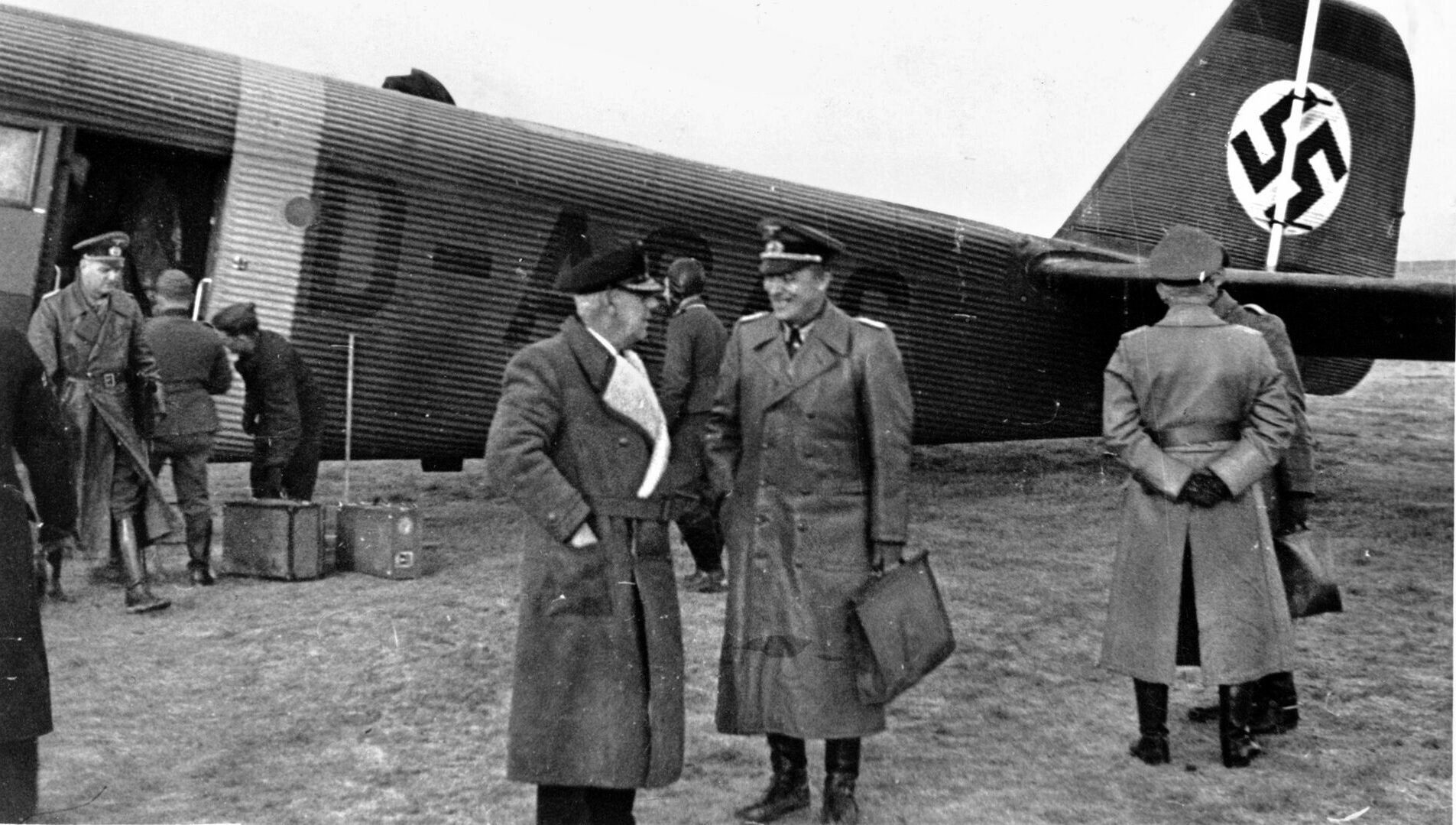

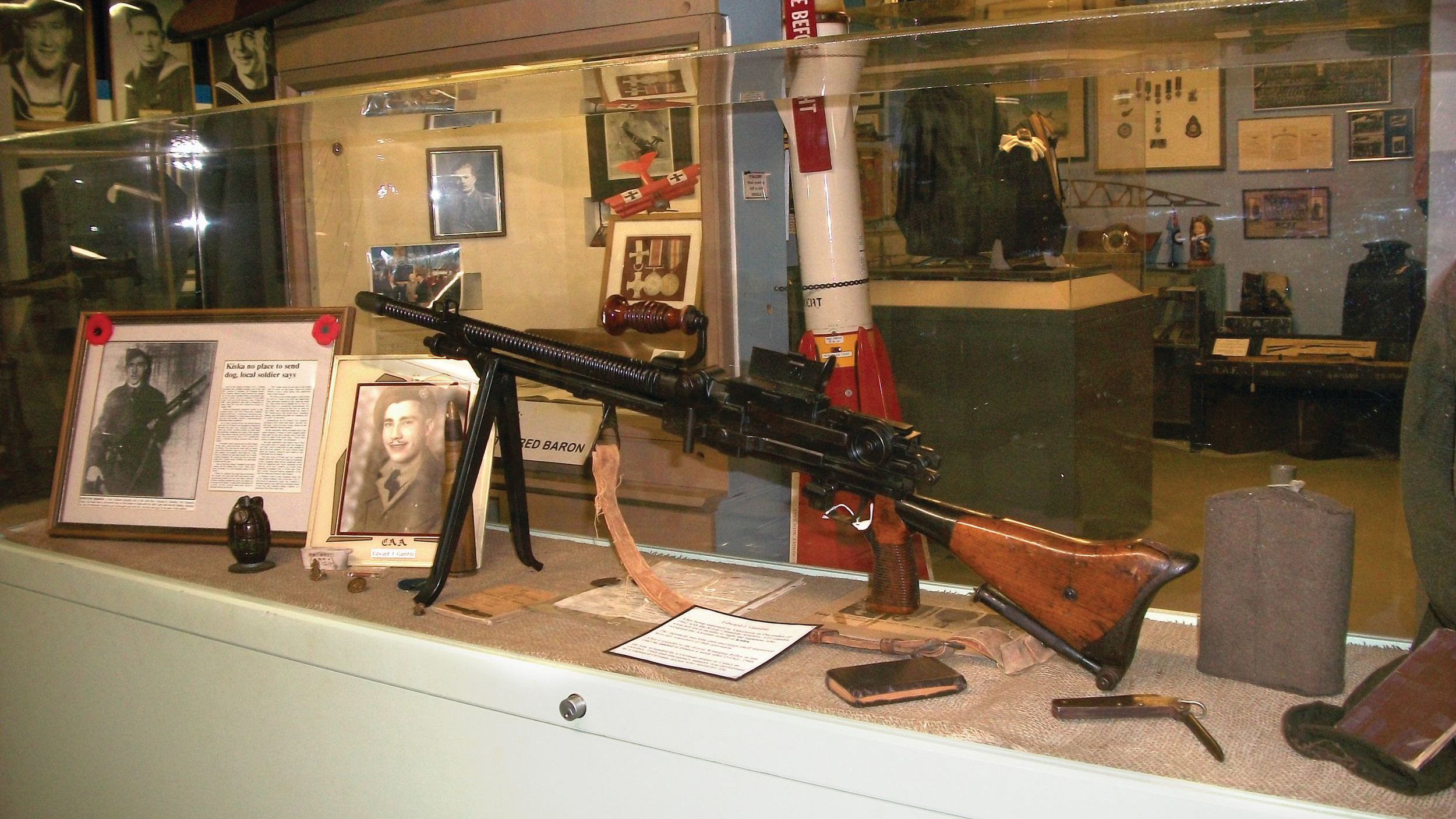
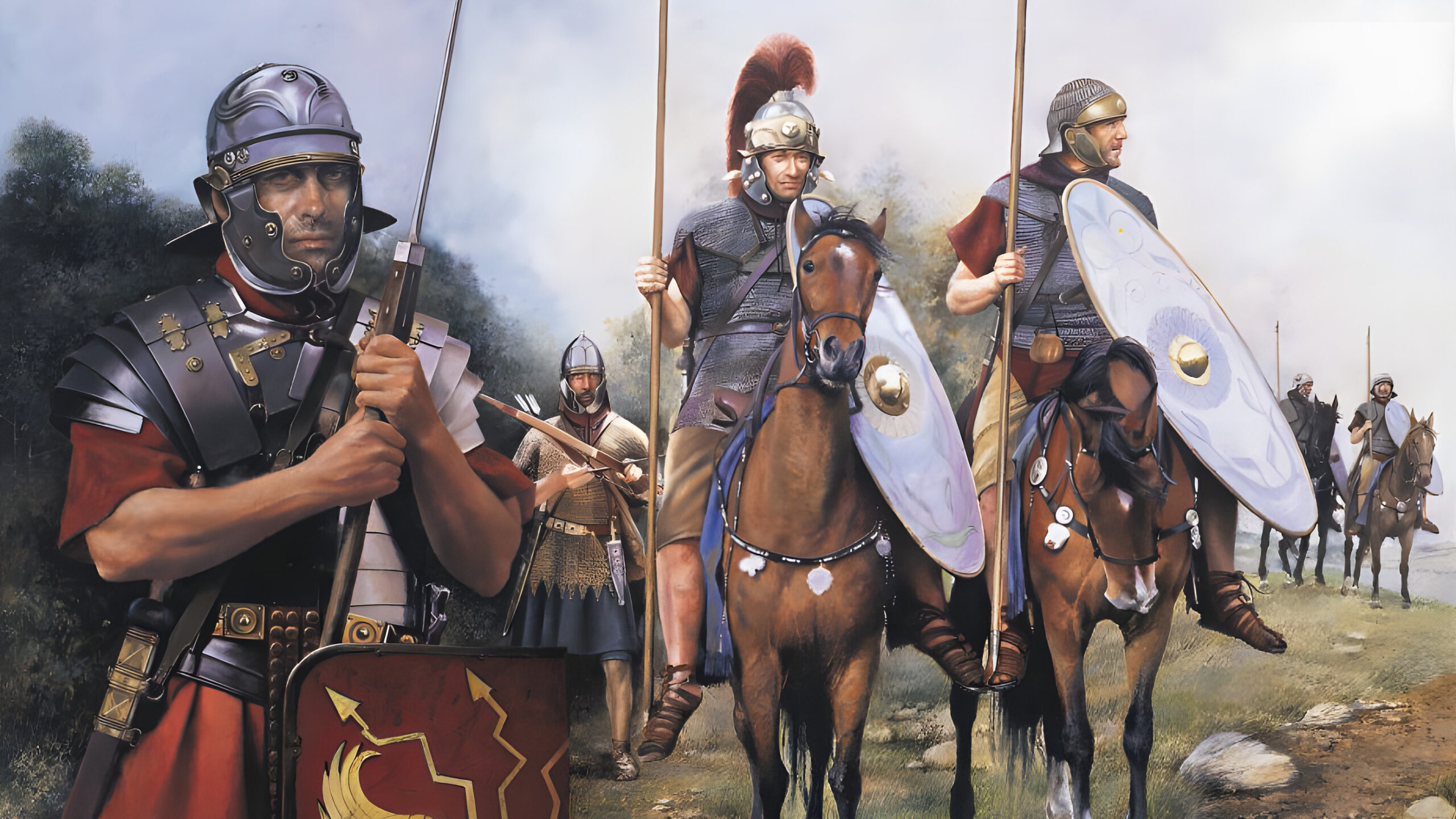
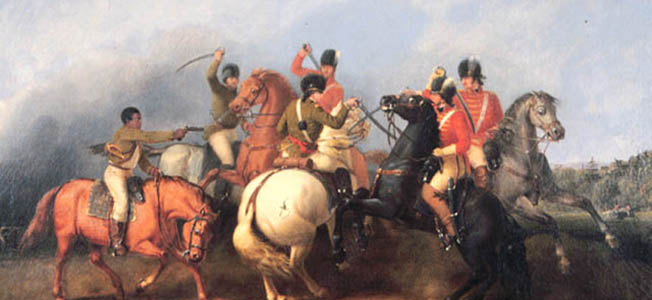

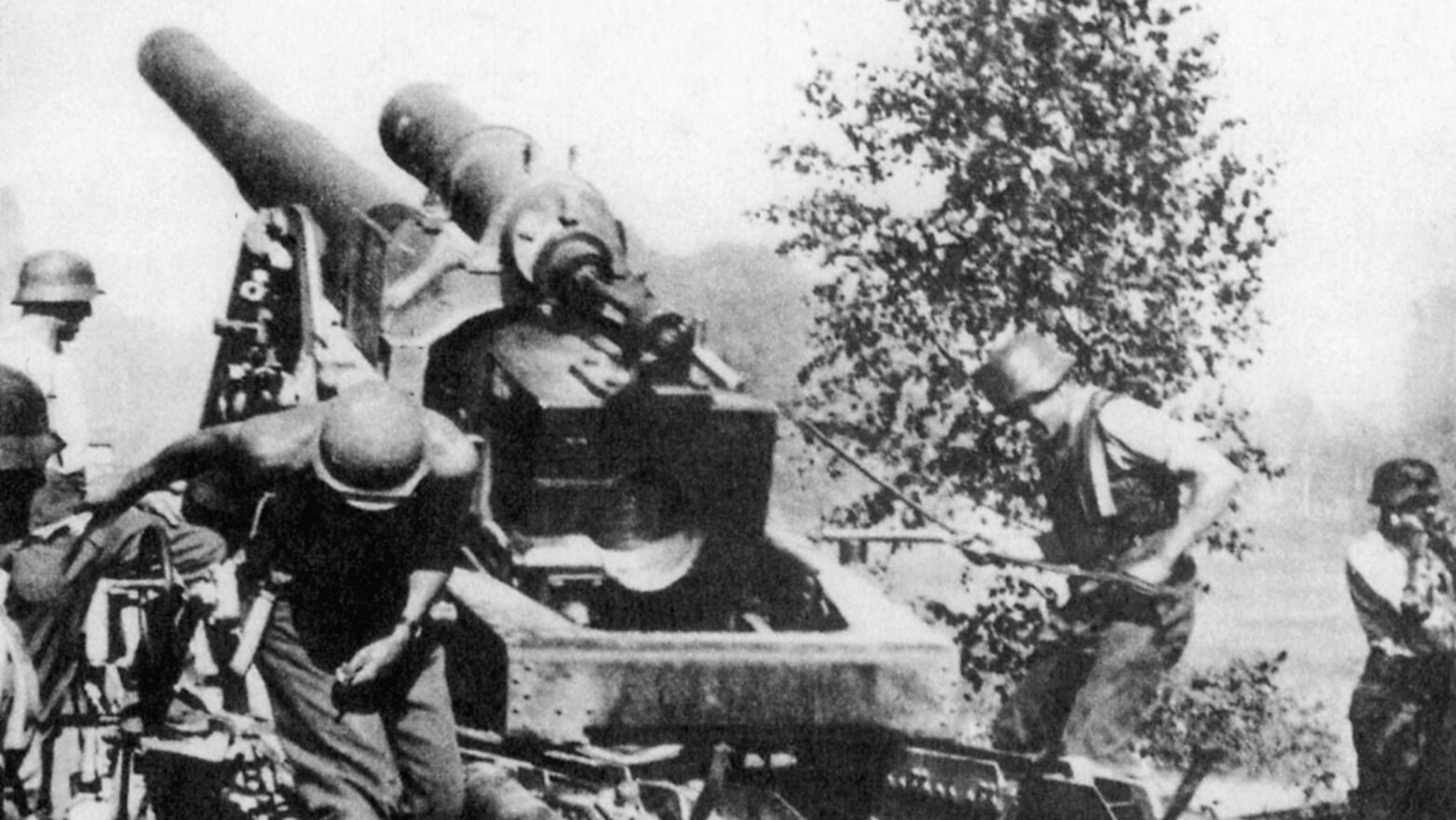
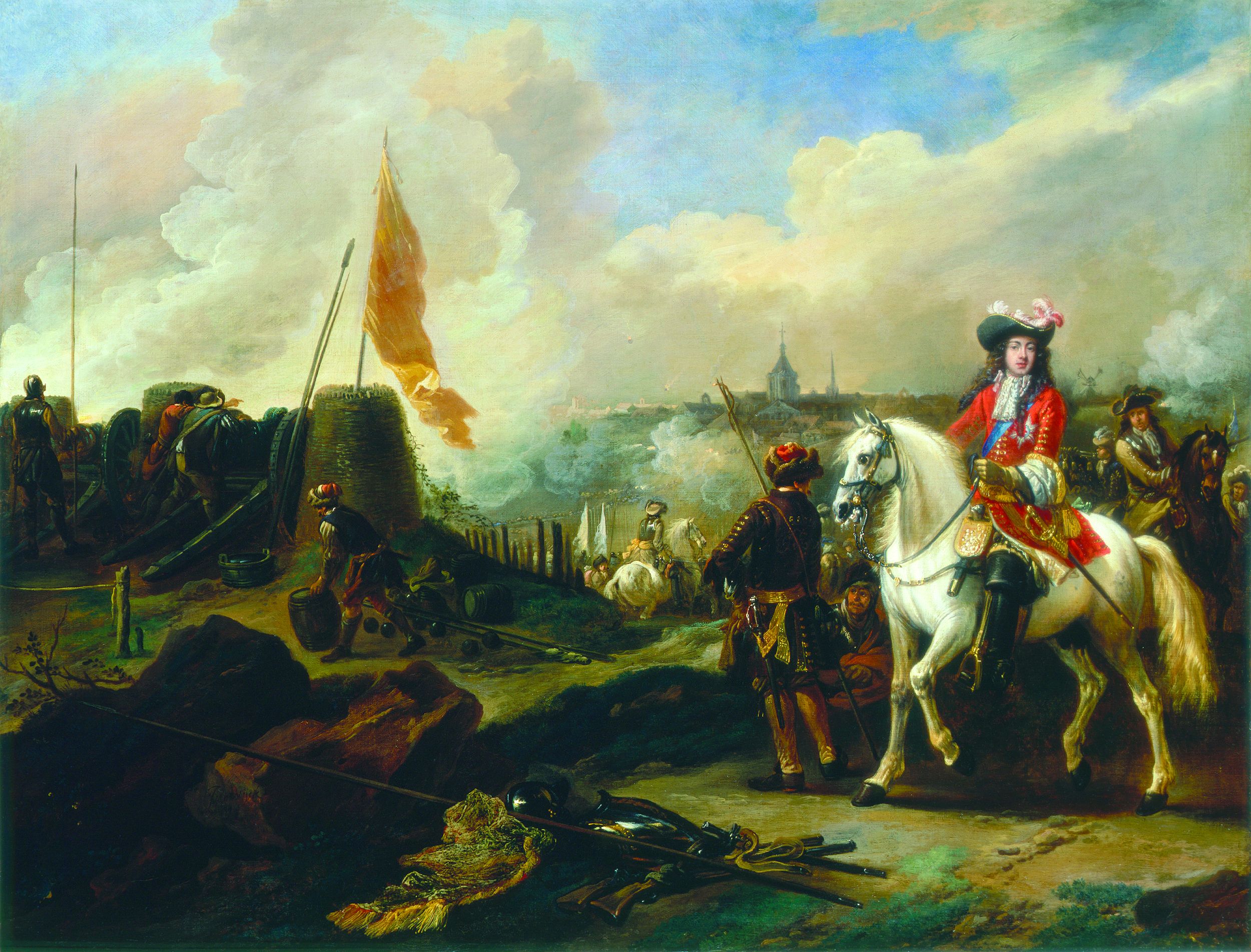
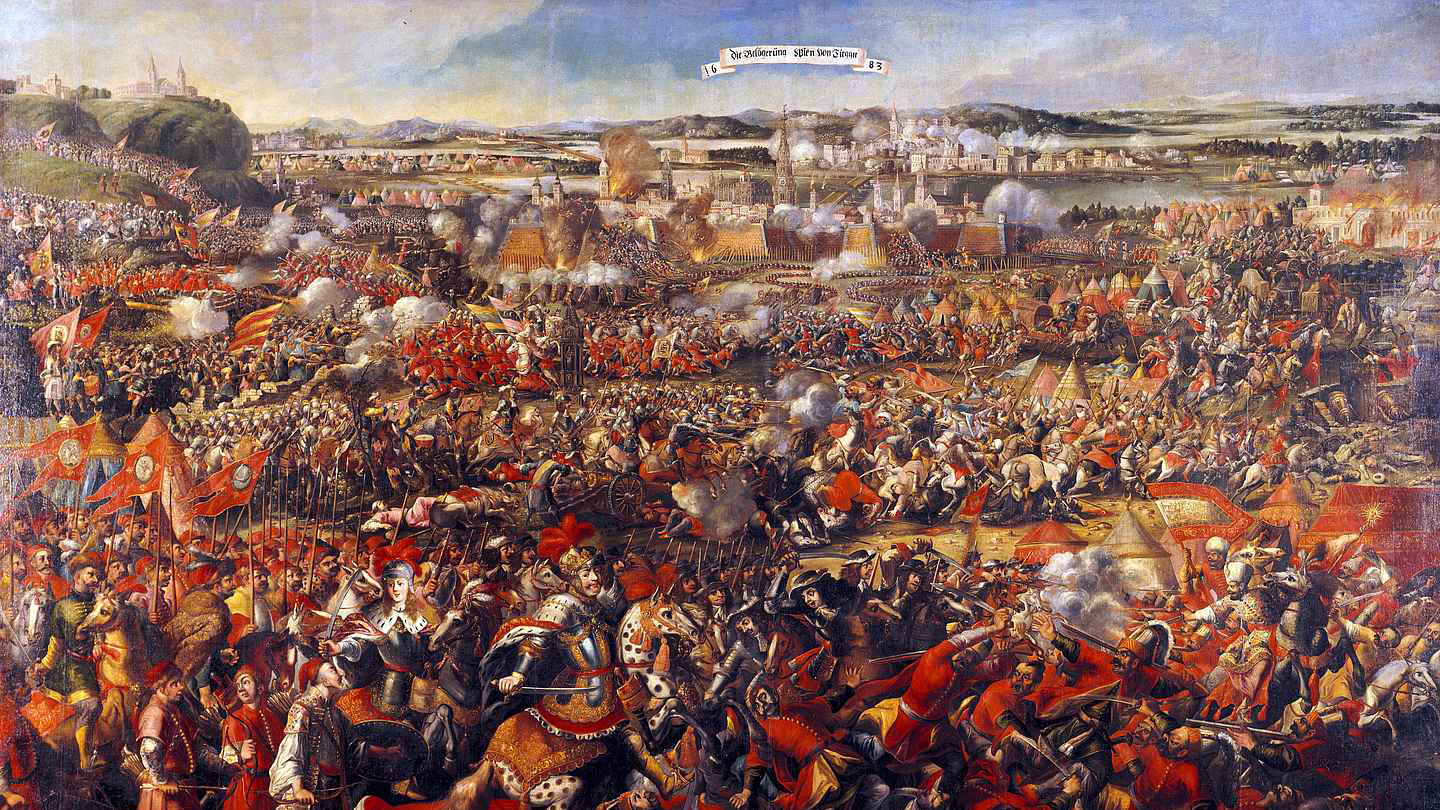
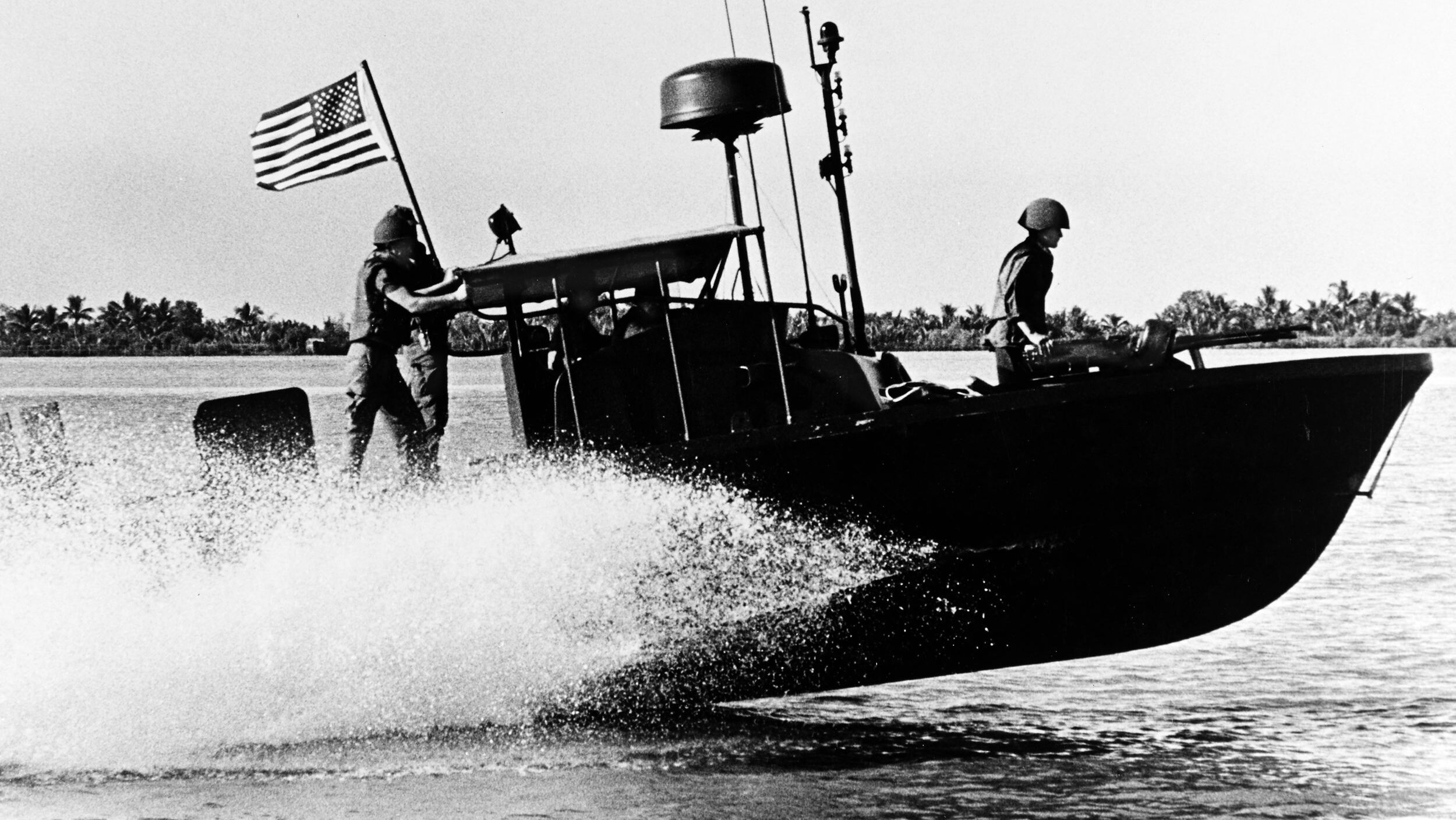
Join The Conversation
Comments
View All Comments